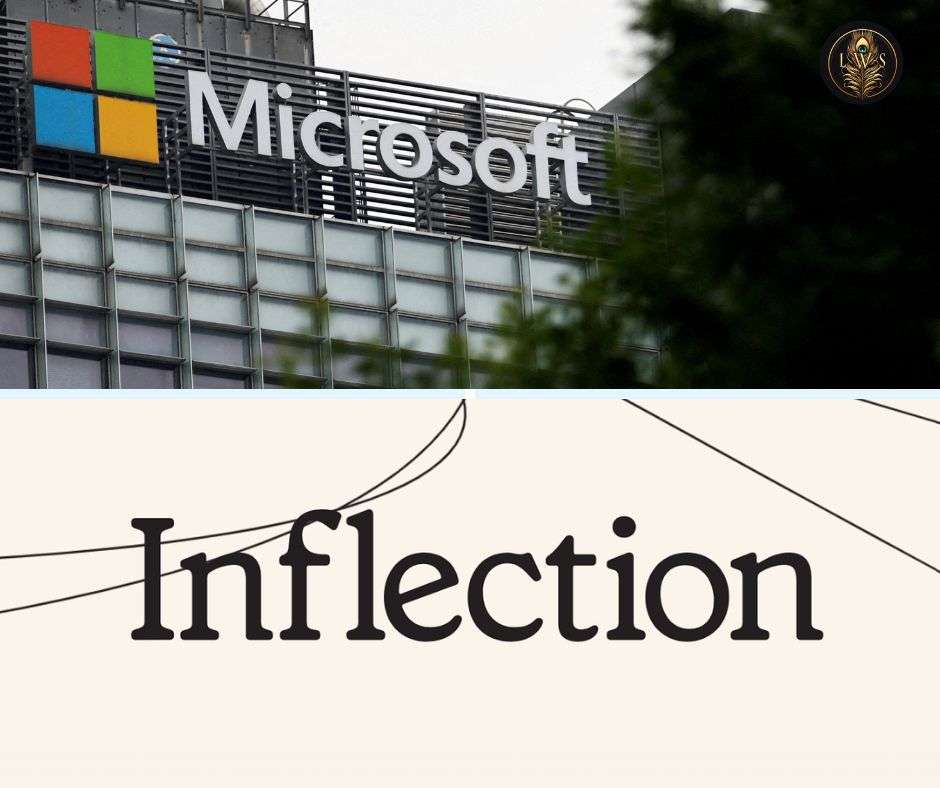
In a remarkable turn of events, Microsoft has acquired the innovative AI startup Inflection, a company that once promised to revolutionize the way we interact with artificial intelligence. Less than a year ago, Inflection made headlines by raising a staggering $1.3 billion in funding, with Microsoft as the lead investor, to develop a more personalized AI experience. Today, the tech giant announced the acquisition, signaling a significant shift in the AI landscape.
Inflection, co-founded by Mustafa Suleyman and Karén Simonyan, aimed to pioneer a new frontier in AI by creating a conversational assistant named Pi that could remember users and previous interactions across multiple platforms. Despite the ambitious vision and substantial investment, the company struggled to keep pace with the rapid advancements and the competitive edge of industry leaders such as OpenAI, Google’s Gemini, and Anthropic.
The Challenges of Crafting Personal AI
- Funding and Financials:
- June 2023: Inflection raises $1.3 billion, with Microsoft as the lead investor.
- Mid-2022: Secures an additional $225 million in funding.
- The Promise of Pi:
- Inflection’s AI, Pi, aimed to offer a more personal and useful conversational AI experience.
- Despite significant investment, Pi failed to meet expectations and could not compete with other major AI technologies.
Microsoft’s strategic move to acquire Inflection less than a year after its substantial investment marks a pivotal moment. The acquisition includes the transfer of Inflection’s co-founders and several key team members to Microsoft, where Suleyman will lead the newly formed Microsoft AI division. This transition signifies not only the end of Inflection as it was initially conceived but also the beginning of a new chapter in Microsoft’s AI ambitions.
The Shift in Strategy:
- Inflection’s approach to unifying various AI services under a single, more personal user experience faced both technological hurdles and market skepticism.
- Microsoft’s acquisition reflects a shift towards consolidating AI expertise and technologies under its burgeoning AI division.
The Fallout for Inflection:
- Reid Hoffman and new CEO Sean White are left to navigate the future of Inflection without its foundational product and most of its team.
- The company will pivot towards an “AI studio business” model, focusing on crafting custom generative AI models for commercial customers.
Microsoft: The AI Power Play:
- This acquisition is part of Microsoft’s broader strategy to assert dominance in the AI sector, having previously invested in other AI ventures like OpenAI.
- The move raises questions about Microsoft’s role as both a benefactor and a consolidator in the competitive AI landscape.
The acquisition of Inflection by Microsoft marks a notable consolidation within the AI industry, emphasizing the primacy of legacy tech giants in shaping the future of artificial intelligence. This event raises critical questions about innovation, competition, and the strategic maneuvers of tech behemoths in a rapidly evolving field.
- Strategic Implications for the Industry:
- The acquisition underscores the intense competition and high stakes in the development and application of AI technologies.
- It highlights the challenges faced by startups in scaling innovative AI solutions amidst the dominance of established tech giants.
- The Future of AI Development:
- Microsoft’s bolstered AI division, under the leadership of Suleyman and Simonyan, is poised to make significant contributions to the field.
- The industry will closely watch how this consolidation affects innovation, competition, and the development of AI technologies that are both powerful and ethically responsible.
Microsoft’s acquisition of Inflection is more than a business transaction; it is a reflection of the dynamic and sometimes precarious nature of innovation in the AI sector. As the industry continues to evolve, the balance between fostering groundbreaking ideas and the consolidation of power by tech giants will remain a central theme. The journey of Inflection, from its ambitious beginnings to its integration into Microsoft, serves as a poignant case study in the complexities of achieving transformative innovation in the competitive landscape of artificial intelligence.
Related News:
Featured Image courtesy of Learn Wave Studios
